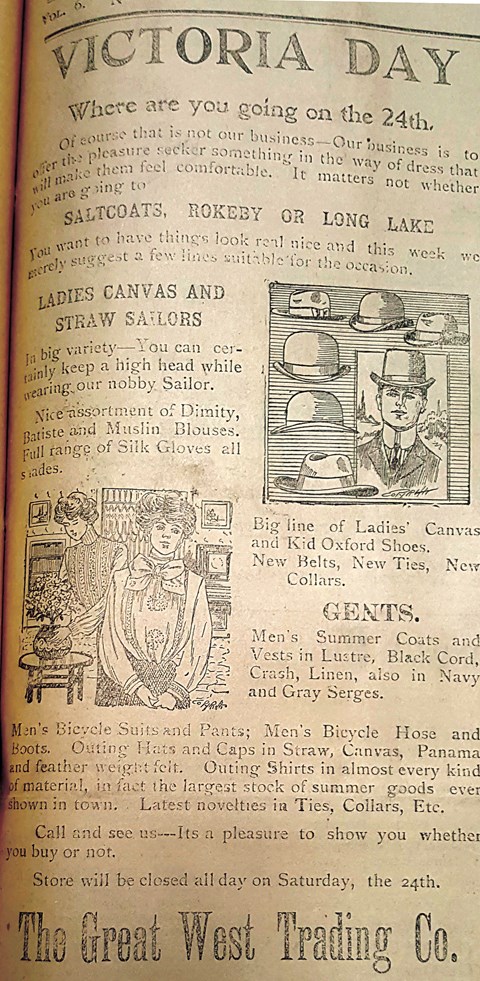Certain dates seem to have an affinity for historical events. In Canadian history, May 24 is one such date.
Going all the way back to 1603, May 24 was the day Samuel de Champlain first dropped anchor in Canada, landing at the mouth of the Saguenay River near what is now the village of Tadoussac, PQ.
It was also on this day in 1779, that Simon McTavish founded the Northwest Company to do battle with the Hudson’s Bay Company in the unsettled west. And we’re not talking virtual battle, as in competing in a business sense, there actually were armed skirmishes between the two companies. Eventually they merged.
And speaking of foundings, it was May 24, 1932, that the R.B. Bennett government passed the bill to establish the Canadian Radio Broadcasting Commission, now the CBC.
Also on May 24: the first time Victoria Day was celebrated across Canada (1902); Newfoundland joined the war against the United States by sending a contingent of 360 men from St. John’s (1812); and Graham Gore, a member of the doomed Franklin expedition set out from the icebound ships to find the Northwest Passage.
Perhaps the most significant historical event to take place May 24, however, was the passing, in 1918 of the Act to confer the Electoral Franchise upon Women.
“Women’s suffrage groups had existed since the 1870s, but during the war it was hard to ignore their arguments,” details the website World War I. “Women were serving in the war, taking over from the men in factories and offices, holding families together while the men were overseas, and working in voluntary organizations that supported the war effort. They couldn’t be kept out of political life any longer.”
They could be kept out of the Yorkton Enterprise, however. No edition of the newspaper from 1918 in the month preceding and the month after the passage of the Act made any mention of it.
Saskatchewan had actually conferred the right to vote on women two years prior, as had the other three western provinces.
Canada lagged behind New Zealand Australia, Finland Norway and Denmark in extending the right to women, but preceded the Netherlands, United States Sweden and Britain.
It would be another decade before women became “persons” in Canada, however.
Emily Murphy had actually been a Alberta judge since 1916, but her rulings were frequently challenged on the basis she was not a person under Canadian law. She along with four other women, who would become known as the “Famous Five” took the case all the way to the Privy Council of Great Britain in 1939 (Canada’s highest court of the day) and won.




